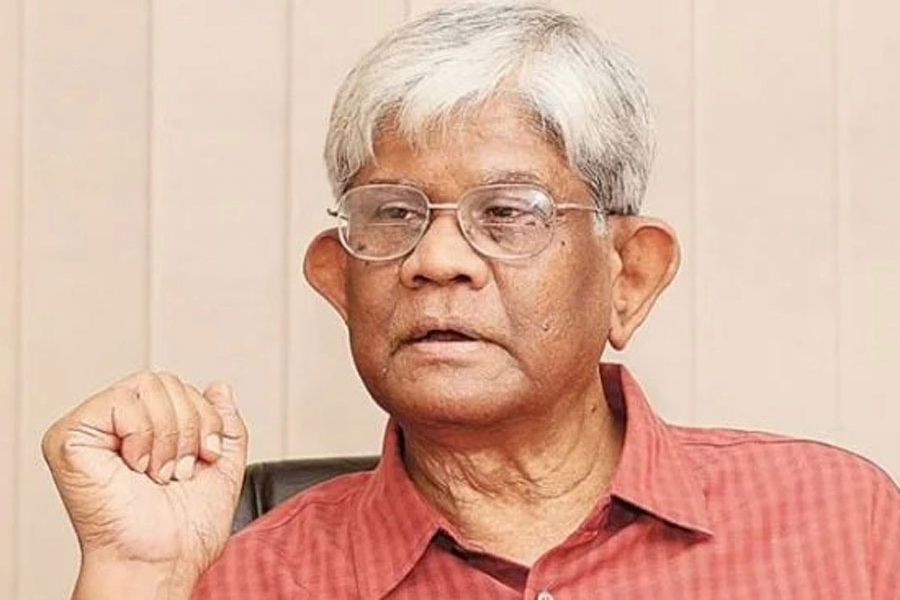
Published :
Updated :

The government would pursue a "cautious stance" on obtaining foreign loans amid the significant rise in total external debts, Finance Adviser Dr Salehuddin Ahmed said Tuesday.
"This year, we are very cautious about taking new loans," he told a group of reporters at his Bangladesh Secretariat office.
His comment came after a journalist drew his attention to the International Monetary Fund (IMF) putting a cap on Bangladesh's foreign loans.
Under the condition, Bangladesh would not be allowed to borrow over $8.44 billion during the current fiscal year.
"I have seen it," said Mr Ahmed, adding that the government was very cautious about taking fresh loans this year.
"We are becoming cautious on our own because we are trying to ensure debt sustainability," he added.
Mr Ahmed said if debt rose all of a sudden, whoever came to power next, the burden would fall on people. "We are trying not to increase debt."
"I was liberal [about taking loans] during the first six months, but in case of taking fresh loans this year, I will think again and again," said the adviser.
He said he was going to attend the IMF-World Bank's annual meetings in October.
"Last year, they could create pressure on us as we were determined to obtain loan instalments. But this year, they would not be able to create pressure like the last time."
Mr Ahmed said he was thinking about not even taking budget support loans if the situation demanded. "Rather, we will try ourselves to enhance revenue earnings."
"When we take loans, our decision-making capacity becomes limited. Lenders say you cannot do this, you cannot do that, etc. They put various kinds of conditions," said the finance adviser.
Mr Ahmed said he was careful about taking loans from the World Bank, the New Development Bank, and even China this time. "Yes, we are cautious, definitely."
Regarding the ceiling put by the IMF, he said it would not create any pressure on Bangladesh's economy.
Regarding India's line of credit, he said the government had already scrapped five to six projects, which had very nominal progress.
However, the Indian Exim Bank had agreed to release funds for the Ashuganj-Akhaura road project, he said.
Mr Ahmed, also the adviser for science and technology, said the Rooppur nuclear power plant trial run would be in December.
Fuel for the plant had already reached the site, he said.
Meanwhile, the adviser, after a meeting of the Advisers' Council Committee on Government Purchase, expressed hope to bring back a portion of the laundered money by February next year.
He said those who launder money know how to do it. "It will take some time to bring the money back. But there has been some progress."
The adviser also said the government was discussing how to make the process faster with many legal firms. "Maybe some portion will come by February. We are preparing the cases for the rest."
Mr Ahmed said there was no way to avoid the formalities to bring back the laundered money.
Asked whether the next government would continue the interim one's steps, the adviser said they would be obliged to do that.
"Unless the processes we have started are followed, they would not be able to bring back the money."
Asked how much money may come by February, he said he had no idea, adding that the central bank governor could tell about this.
On allegations of the continuation of money laundering during the period of the interim government, Mr Ahmed said he would look into those when the central bank provided a comprehensive report.
Replying to a query on making higher allocations in the electoral area of an adviser to the present government, Mr Ahmed answered in the negative.
"Those projects were taken a long time ago," he added.
syful-islam@outlook.com


 For all latest news, follow The Financial Express Google News channel.
For all latest news, follow The Financial Express Google News channel.